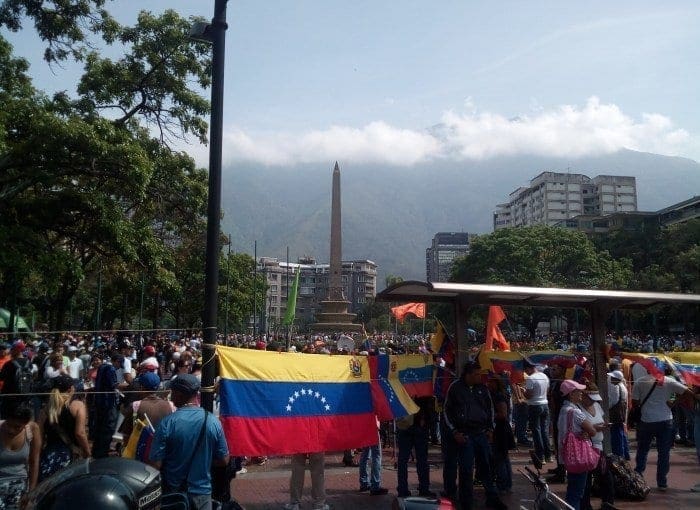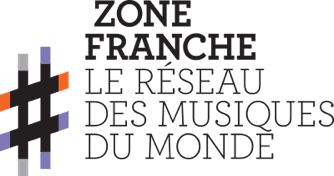Music is still queen in Venezuela, a land of salsa and rhythms inherited from Africa. But the economic, political and social crisis in the country has put a serious break on the production and creation of music in a nation that was once one of the most prominent in the Caribbean.
If you want to go salsa dancing, there are still some excellent spots in Caracas that remain open against all odds. A handful of bars and nightclubs still offer concerts that go on until the small hours. For the artists, however, it’s not enough to make a living. “Before, we would perform five times a week, and it was enough to live off,” remembers Aquiles Baez, one of the great names in jazz and Latin rhythms in Venezuela. “Now, if you see a group in a bar, they’re playing for free, or almost”.
Not only has the number of bars offering concerts fallen in the last few years, but the ones that are still putting them on are havens for enthusiasts, with nothing to pay their musicians other than the odd Cuba Libre to sweeten the pill. “Those who agree to play for free do so because they get to hang out with their friends, like to keep their hand in and perform a bit,” explains Cheo Linajes, a composer of typically Venezuelan music, such as the merengue caraqueño.
Hard to make a living
So, how do you survive as an artist in Venezuela? “Almost everyone has another job,” says Cheo Linajes, who runs a small business. “There aren’t many people who can get by on just that”. And those who do, don’t usually earn their money in Venezuela. “I live off concerts I sometimes do abroad”, says Aquiles Baez, who says he hasn’t received a cent in his country for more than a year.
The same is true of Alfredo Naranjo, another big name on Venezuela’s contemporary music scene. This passionate salsa composer nevertheless explains that nothing is easy when you’ve made the decision to stay in Venezuela: “Just try convincing a label or a concert venue to pay your airfare from Caracas… The prices are much higher than anywhere else! We are almost prisoners in our own country”. According to him, if you want to be a successful artist and Venezuelan, it’s better to live abroad. “Look at the Latin Grammys,” he explains, “none of the Venezuelan artists nominated lives in Venezuela”.
Not least because it’s hard to make a name for yourself if you’re in Venezuela: the few recording studios still open cost a fortune and it is impossible to produce a record. Streaming platforms like Spotify are no longer accessible, blocked by the main Internet provider CANTV since 2018.
A country with a musical history
It’s a living hell for Venezuelan artists. “Especially when you think that Caracas was one of the world capitals of Latin music in the 1970s and 80s,” remembers historian Juan Carlos Baez. Back then, Venezuela could afford the biggest stars in salsa thanks to oil revenue – the country is home to the largest reserves in the world. The recording industry had enough to finance the expansion of global stars in the making, such as Oscar D’León.
It was also at that time that conductor José Antonio Abreu created the Sistema de Orquestras, a musical education programme for the people that put musical instruments into the hands of thousands of poor Venezuelan children. “The Sistema made Venezuela a country of professional musicians,” gushes Aquiles Baez. “But like everything here, it’s become a propaganda tool that is being ruined”. Funded entirely by the Venezuelan government, the Sistema now claims to have a million students in Venezuela, while the country is penniless.
Music and politics
Venezuelan musicians also have to tackle another challenge: navigating the choppy waters of political polarisation. “There are now three types of artist”, summarises Alfredo Naranjo. “Those who support the government, those who support the opposition, and those who make music for music’s sake”. He believes that the first two categories, despite themselves, often end up condemned to producing propaganda for one side or the other.
Cheo Linajes defends himself, making no bones about praising the merits of the Bolivarian revolution. “Since Hugo Chavez, the state introduced social programmes that were very beneficial for artists. It allowed us to perform and record for free. But now, with the US blockade, they can’t afford it anymore”.
Aquiles Baez reminds us that only artists who supported Chavez could access these programmes. “If you didn’t publicly defend the government, it was inaccessible”. Like Alfredo Naranjo, he prefers to distance himself as much as possible from politics. Andres Barriois, a composer of experimental music, joins them: “We make music to create emotions, to help people hold on despite their difficult lives, not to send a political message”.
But although times are hard, not all these artists are ready to leave Venezuela: the crisis is an “inspirational chaos”, to use the words of Andres Barrios. “The crisis is a source of endless musical creativity. That’s the silver lining,” explains Alfredo Naranjos. “You can’t imagine the musical talents that are emerging in Venezuela at the moment”. Despite this optimism, many of these young talents are not patient enough: plenty have joined the exodus, like the 4.5 million Venezuelans who have left the country since 2015, according to UN figures.


